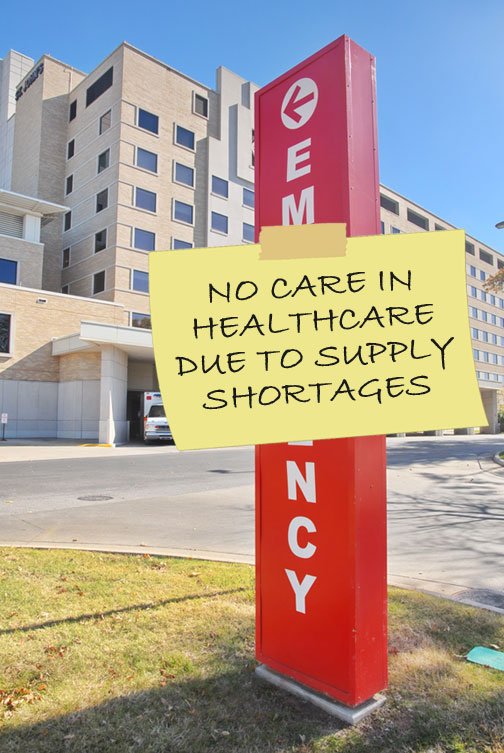Collecting Care Rationing Stories to Advocate for More Inclusive Healthcare
By Brandie Sendziak, Esq, FLARE Project
During emergencies like the COVID-19 pandemic, when hospitals are overwhelmed with the number of people needing help, they turn to “care rationing.” Care rationing means medical providers limit the types of care they provide to certain people.
Sometimes care rationing means that people will be denied life-saving care and instead will only receive care to help them be more comfortable. When care rationing happens on the basis of certain characteristics, it can be unlawful or wrong. Because COVID precautions often mean patients are without their usual support systems, care rationing can happen behind closed doors without input from family members, friends, support workers, or community. It is important to share stories of discrimination so that all people receive fair treatment.
The #NoBodyIsDisposable Coalition and the Fat Legal Advocacy, Rights, & Education Project have created a short survey to gather information from people who are being or have been denied medical care because of limited medical resources during the ongoing COVID-19 crisis. Responses will be used to help advocate for fair medical treatment. Stories will be shared to create awareness and support advocacy. (Respondents can choose whether or not to share anonymously.)
Please take the survey if you or someone you know had a hard time getting medical treatment during COVID due to limited medical personnel and supplies/equipment shortages and you suspect part or all of the reason you did not receive necessary care was based on discrimination including but not limited to your weight, disability, race, age, or other factors.
Take the survey if you have been delaying necessary medical care because you worry if you do get COVID that you will be deprioritized for life-saving medical treatment based on your weight, disability, race, age, or other factors.
Take the survey if you work at a health care organization and have concerns about the care rationing policy, or how it is implemented.
English and Spanish-language surveys are available. Thank you to Senior and Disability Action for providing Spanish translation. You can find the surveys here: https://www.flareproject.org/rationingsurvey/
NBID and FLARE will be reviewing answers on an ongoing basis. Please share this information with your networks so we can collect as many responses as possible. Thank you for your support of this effort.
Brandie Sendziak, Esq, is a fat, legally blind disability and immigration attorney. She is the Director of FLARE, the Fat Legal Advocacy and Rights Education Project. Started by Sondra Solovay and led by Brandie since 2020, FLARE is dedicated to the fundamental belief that fat people deserve justice, which includes equal rights under the law as well as a leadership role in decisions that impact fat people. In addition to her work with FLARE, Brandie is the Supervising Immigration Attorney at Homeless Advocacy Project and supervises the legal department at Independent Living Resource Center San Francisco. Brandie also has a background in criminal defense. FLARE is supported by an array of dedicated volunteers. For more information, visit flareproject.org.
OPINION DISCLAIMER: Any views or opinions stated in the NAAFA Community Voices Blog are personal and belong solely to the blog author. They do not represent the views or opinions of NAAFA or the people, institutions or organizations that the owner may or may not be associated with in professional or personal capacity, unless explicitly stated. Any views or opinions are not intended to malign any religion, ethnic group, club, organization, company, or individual.


